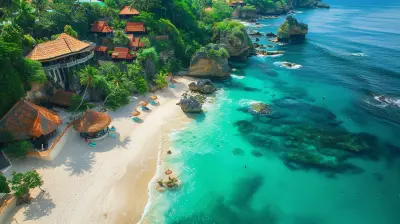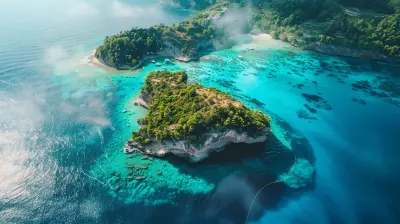Leave No Trace: Responsible Camping Practices for Outdoor Enthusiasts
5 October 2025
Camping is an incredible way to reconnect with nature, unwind from the digital world, and soak in the beauty of the great outdoors. But with that privilege comes responsibility. Every year, thousands of adventurers venture into forests, mountains, and parks, and unfortunately, some leave a lasting impact in the form of litter, damaged trails, and disturbed wildlife.
That’s where the Leave No Trace (LNT) principles come in. These guidelines help campers minimize their footprint and protect nature for future generations. So, if you love the outdoors (and I know you do), let’s talk about how to camp responsibly while still having a blast! 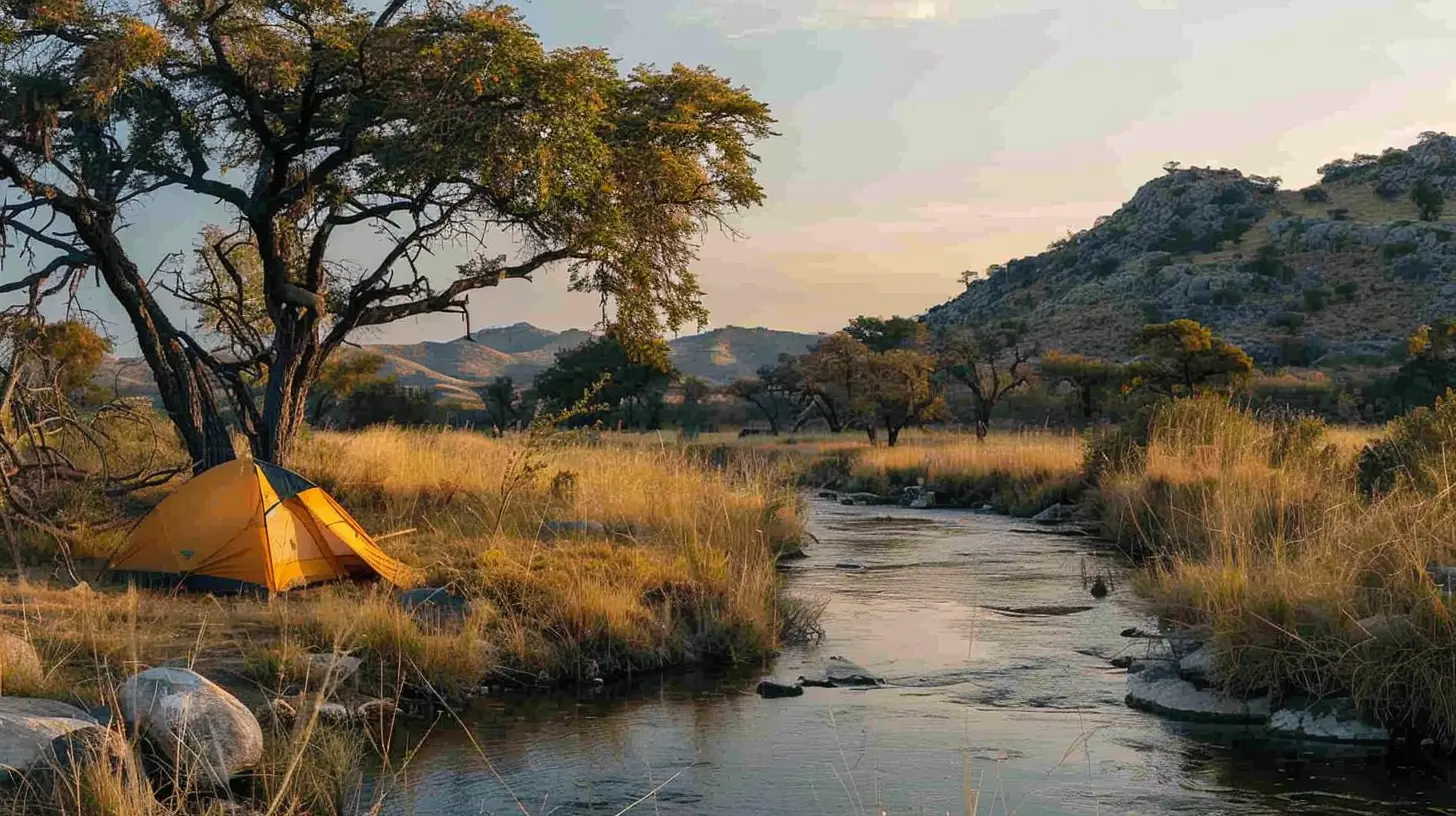
What is Leave No Trace and Why Does it Matter?
"Leave No Trace" is more than just a catchy phrase—it’s a mindset. It encourages outdoor enthusiasts to respect nature, minimize their impact, and preserve the environment.Think about it: if everyone left behind trash, cut down trees for firewood, or fed wild animals, nature as we know it would vanish. By following LNT principles, we ensure that forests stay lush, rivers stay clean, and wildlife remains undisturbed.
Now, let’s break down the seven Leave No Trace principles and see how you can implement them on your next adventure. 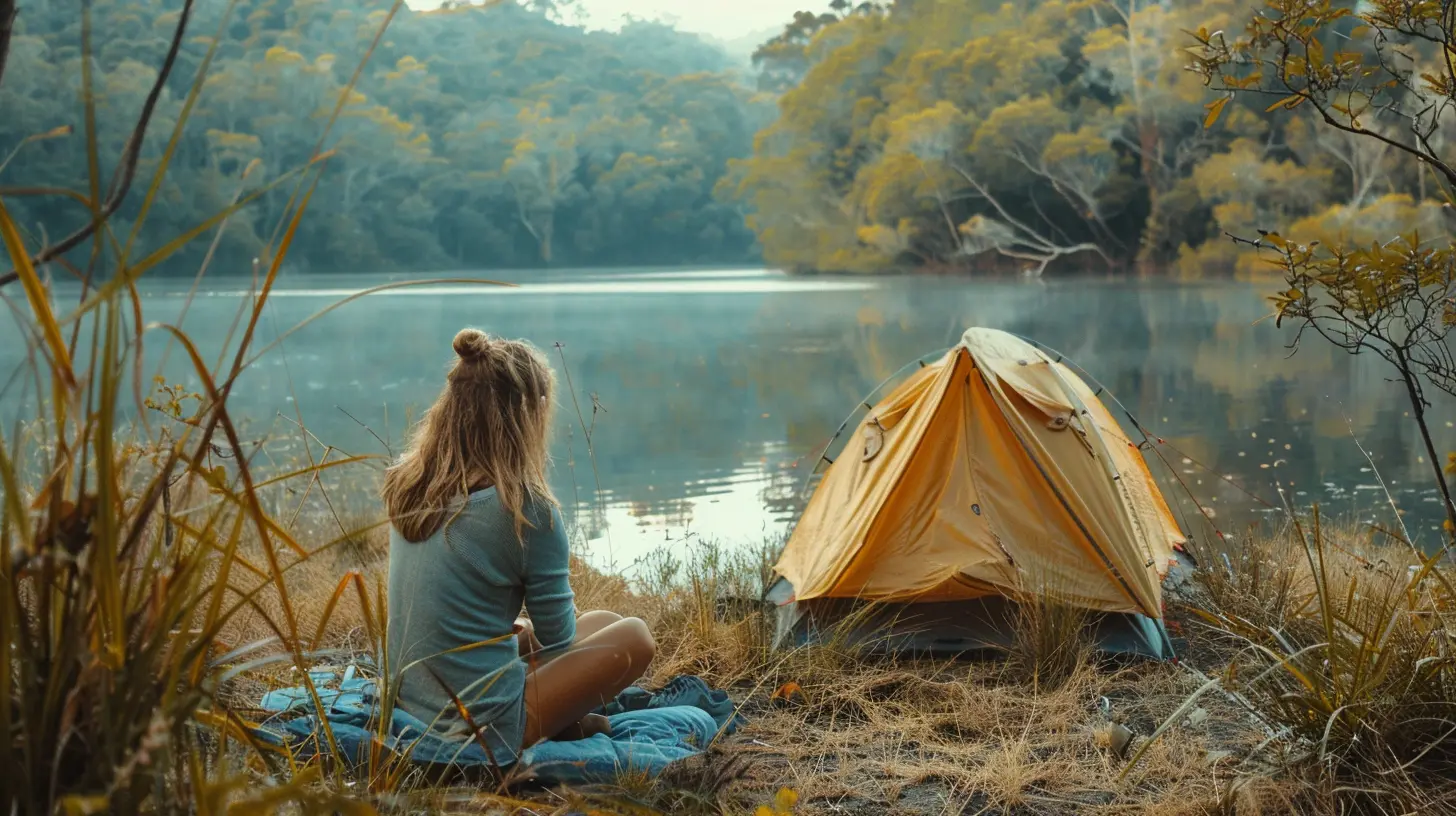
1. Plan Ahead and Prepare
Ever heard the saying, "Failing to plan is planning to fail"? Well, this applies to camping too! Proper preparation helps you avoid unnecessary harm to the environment and yourself.How to Plan Like a Pro:
- Check regulations – Some areas have restrictions on fires, camping zones, or even visitor limits.- Know the terrain and weather – Unexpected weather can ruin your trip and force you into situations where you're more likely to damage the land.
- Pack eco-friendly gear – Bring reusable utensils, biodegradable soap, and a sturdy tent to minimize waste.
- Stick to designated areas – Camping in unauthorized spots can cause soil erosion and disrupt local wildlife.
A little research goes a long way in making your adventure smooth and sustainable! 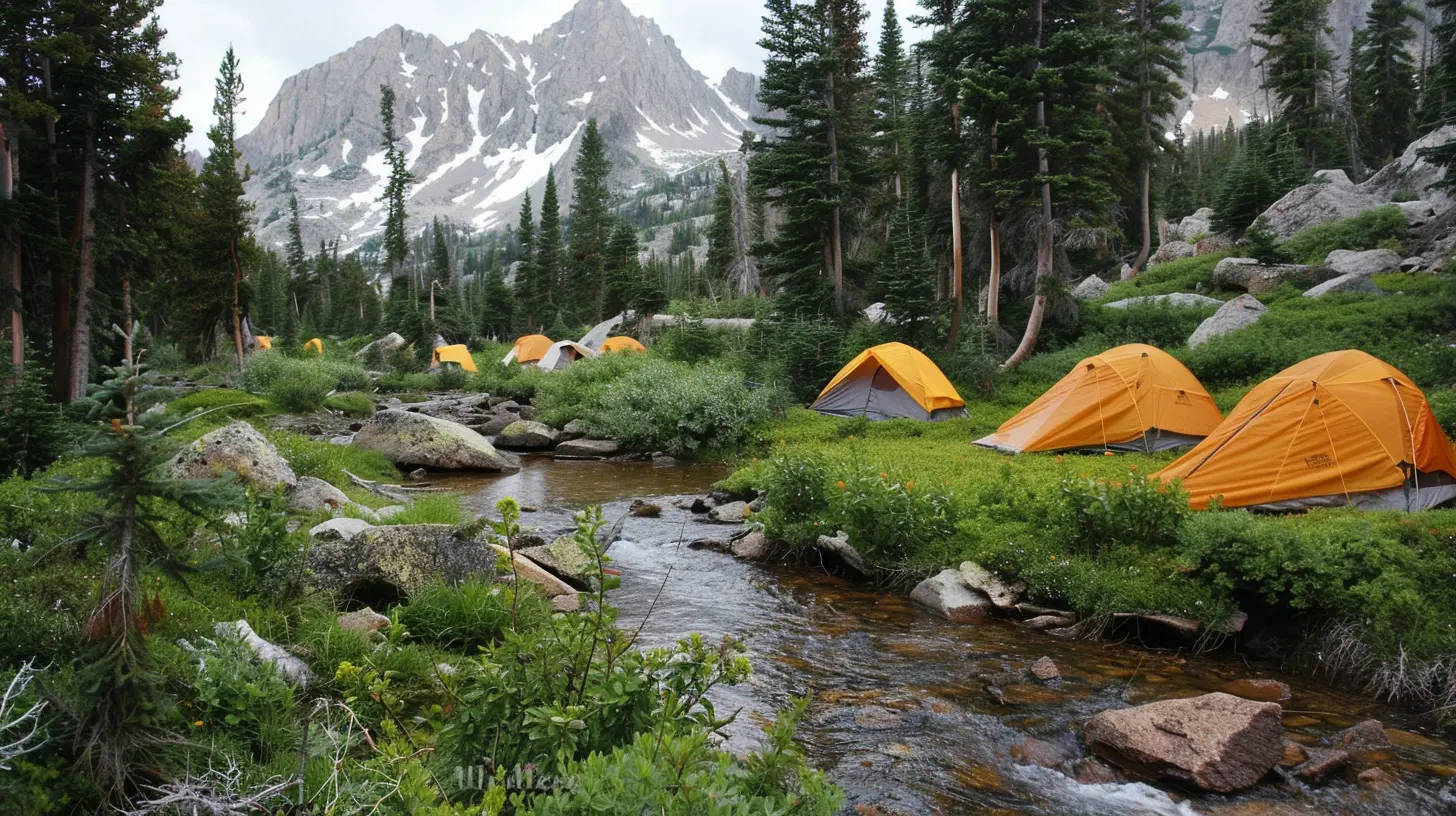
2. Travel and Camp on Durable Surfaces
Not all ground is created equal. Some areas are more fragile than others, and wandering off-trail can do a lot more harm than you might think.Best Practices:
- Use established campsites – If a spot already exists, it's probably the best place to stay without harming the terrain.- Stay on trails – Cutting across switchbacks or creating your own path damages vegetation and contributes to erosion.
- Avoid fragile areas – Wetlands, meadows, and cryptobiotic soil (a fancy name for living dirt in deserts) are extremely sensitive and take years to recover from damage.
Every step you take should be a step toward protecting the land, not destroying it. 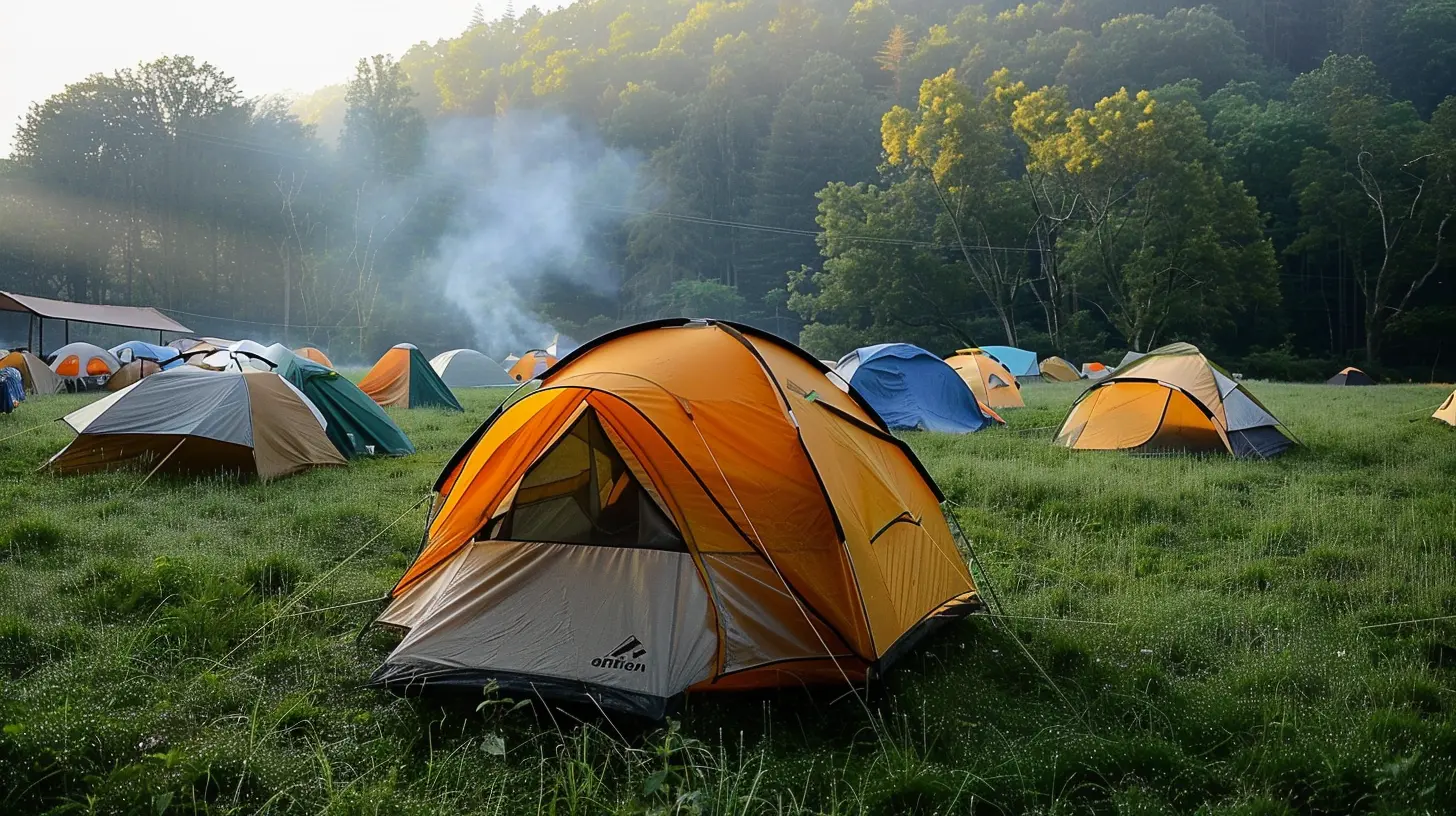
3. Dispose of Waste Properly
Nobody wants to stumble upon someone else's trash while trying to enjoy nature, right? Leaving waste behind is a surefire way to ruin the outdoors for everyone.The Golden Rules of Waste Management:
- Pack it in, pack it out – If you brought it, take it with you. That includes food wrappers, toilet paper, and even biodegradable items like orange peels.- Use the "bathroom" responsibly – If there's no restroom, dig a "cathole" (6-8 inches deep) at least 200 feet away from water sources.
- Dispose of dirty water properly – Strain food scraps from dishwater and scatter the water away from lakes and streams.
Mother Nature isn’t a trash can—treat her with respect!
4. Leave What You Find
It’s tempting to pocket a pretty rock or pick some wildflowers, but removing natural elements disrupts the ecosystem.Ways to Respect Nature:
- Take only pictures – Your camera (or phone) is your best tool for capturing beauty without harming the environment.- Don't carve into trees or rocks – "John was here" might be cool to you, but it scars nature permanently.
- Avoid disturbing historical sites – If you stumble upon ancient artifacts or fossils, leave them intact so others can enjoy them too.
Nature’s beauty is meant to be shared, not taken.
5. Minimize Campfire Impact
Few things beat the cozy ambiance of a campfire. But uncontrolled fires are one of the biggest dangers to the environment.Campfire Smart Tips:
- Use a camp stove – They're more efficient and don’t scar the land.- Follow fire regulations – Some areas prohibit fires due to dry conditions.
- Use established fire rings – If fires are allowed, use designated fire pits instead of creating new ones.
- Burn only small wood – Avoid cutting down trees (even dead ones) as they provide habitat for wildlife.
If you can't ensure a fire is safe and completely out, it’s best to skip it altogether.
6. Respect Wildlife
Seeing a deer or a bear in the wild is thrilling, but remember—you’re in their home.Wildlife Etiquette:
- Keep your distance – Getting too close to animals stresses them out and can be dangerous for you.- Don’t feed them – Human food can mess up their diet and make them dependent on campers.
- Store food properly – Use bear-proof containers or hang food in a tree to keep unwanted visitors away.
Respect wildlife, and they’ll respect you back (from a safe distance!).
7. Be Considerate of Other Visitors
Nature should be a peaceful retreat for everyone. Nobody wants their camping experience ruined by loud music, bright lights, or careless behavior.How to Be a Thoughtful Camper:
- Keep noise levels down – Nature’s soundtrack is far better than any speaker.- Yield the trail – Give way to hikers going uphill and be courteous to fellow campers.
- Control pets – If you bring a furry friend, ensure they don’t disturb wildlife or other visitors.
Being a responsible camper isn’t just about nature—it’s also about respecting fellow adventurers.
Why Responsible Camping Matters
Imagine taking your future kids (or grandkids) to your favorite camping spot, only to find it trashed and overrun. That’s the reality if we don’t follow Leave No Trace principles.By practicing these simple habits, we help preserve nature so future generations can enjoy the same breathtaking landscapes we do today. It’s a small effort with a huge impact.
Final Thoughts
Camping isn’t just about pitching a tent and roasting marshmallows—it’s about cherishing the great outdoors and ensuring it stays wild and beautiful.By planning ahead, cleaning up after yourself, and respecting nature, you become a true steward of the environment. So, next time you head out into the wilderness, remember: leave no trace, take only memories, and make the world a better place—one campsite at a time.
Happy camping!
all images in this post were generated using AI tools
Category:
Camping TravelAuthor:

Tracie McAdams
Discussion
rate this article
1 comments
Jack McWhorter
Camping? More like a culinary dance with nature! Remember, crumbs can be confetti, but trash is just an unwanted guest!
October 11, 2025 at 2:43 PM

Tracie McAdams
Thank you for the creative reminder! Embracing nature responsibly enhances our culinary adventures while keeping the environment pristine. Let’s dance with nature, not leave a mess!

